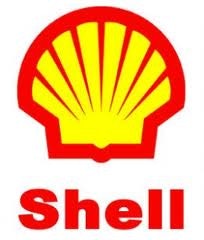
I am currently looking at the dividend prospects of Royal Dutch Shell Plc (LON:RDSB) and assessing whether the company is an appetizing pick for income investors.
How does Royal Dutch Shell’s dividend history stack up?
| 2009 | 2010 | 2011 | 2012 | |
|---|---|---|---|---|
| FY Dividend Per Share | 168 U.S. cents | 168 U.S. cents | 168 U.S. cents | 172 U.S. cents |
| DPS Growth | 5% | – | – | 2.4% |
| Dividend Cover | n/a | 1.8x | 2.7x | 2.5x |
Source: Royal Dutch Shell Company Accounts
Royal Dutch Shell Plc (LON:RDSB)’s severe revenues collapse in 2009, prompted by the geo-financial crisis at the time, caused earnings per share (EPS) to slide more than two-thirds. The company raised the dividend modestly that year, although it kept shareholder payout growth on hold until last year despite recovering earnings. Last year’s rise was initiated after it successfully completed the first stage of its growth plan, which runs to 2015.
Dividend cover has fluctuated during the last four years, although it has since steadied comfortably above the widely regarded security benchmark of two times forward earnings.
What are Royal Dutch Shell’s dividends expected to do?
| 2013 | 2014 | |
|---|---|---|
| FY Dividend Per Share | 176 U.S. cents | 181 U.S. cents |
| DPS Growth | 2.3% | 2.8% |
| Dividend Cover | 2.3x | 2.3x |
| Dividend Yield | 5% | 5.2% |
Source: Digital Look. Exchange rate: £1=$1.51507
City analysts expect EPS to decrease 5% in 2013, with a modest 1% bounce-back penciled in for next year. During the period, shareholder payments are expected to keep nudging higher, with dividend cover still well ahead of two times prospective earnings.
Royal Dutch Shell Plc (LON:RDSB) announced earlier this month that profits rose to $8 billion in the first quarter versus $7.7 billion in the corresponding 2012 period, even though revenues slipped to $112.8 billion from $119.9 billion last year. Oil production advanced 2% on an annual basis to 3.6 million barrels of oil equivalent per day.
Promisingly, the solid first-quarter performance prompted Shell to raise the Q1 dividend 5% to 45 U.S. cents. Additionally, the company’s ability to throw up plenty of cash is also facilitating a massive share repurchase scheme, and Royal Dutch Shell Plc (LON:RDSB) repurchased $1.2 billion worth of shares as of the end of April.
How do Royal Dutch Shell’s dividend prospects rate against the competition?
| Prospective Dividend Yield | Prospective P/E Ratio | |
|---|---|---|
| Oil and Gas Producers | 5.2% | 21.8 |
| FTSE 100 | 3.1% | 16 |
Source: Digital Look
Royal Dutch Shell Plc (LON:RDSB) was recently dealing on a P/E readout of 8.6 for 2013, far below that of its oil industry counterparts as well as the FTSE 100. And with a dividend yield just below that of its black oil rivals, I believe that the company provides excellent value for money, and fully expect dividends to grow in lockstep with robust earnings growth in coming years
In my opinion, profits are on course to skyrocket over the long term as its ambitious drive to hike group production bears fruit. Royal Dutch Shell Plc (LON:RDSB) has earmarked between $120 billion and $130 billion in capex spend through to 2015, including the construction of the world’s deepest offshore oil and gas asset in the Gulf of Mexico. In total, the firm is building more than 30 major new assets under construction, spanning the globe. I think that the company is in a solid position to overcome current oil price volatility and punch strong growth further out, in turn driving dividend growth upwards.
A Closer Look at Royal Dutch Shell’s Dividend Potential originally appeared on Fool.com and is written by Royston Wild.
Motley Fool contributor Royston Wild has no position in any stocks mentioned. The Motley Fool has no position in any of the stocks mentioned.
Copyright © 1995 – 2013 The Motley Fool, LLC. All rights reserved. The Motley Fool has a disclosure policy.
